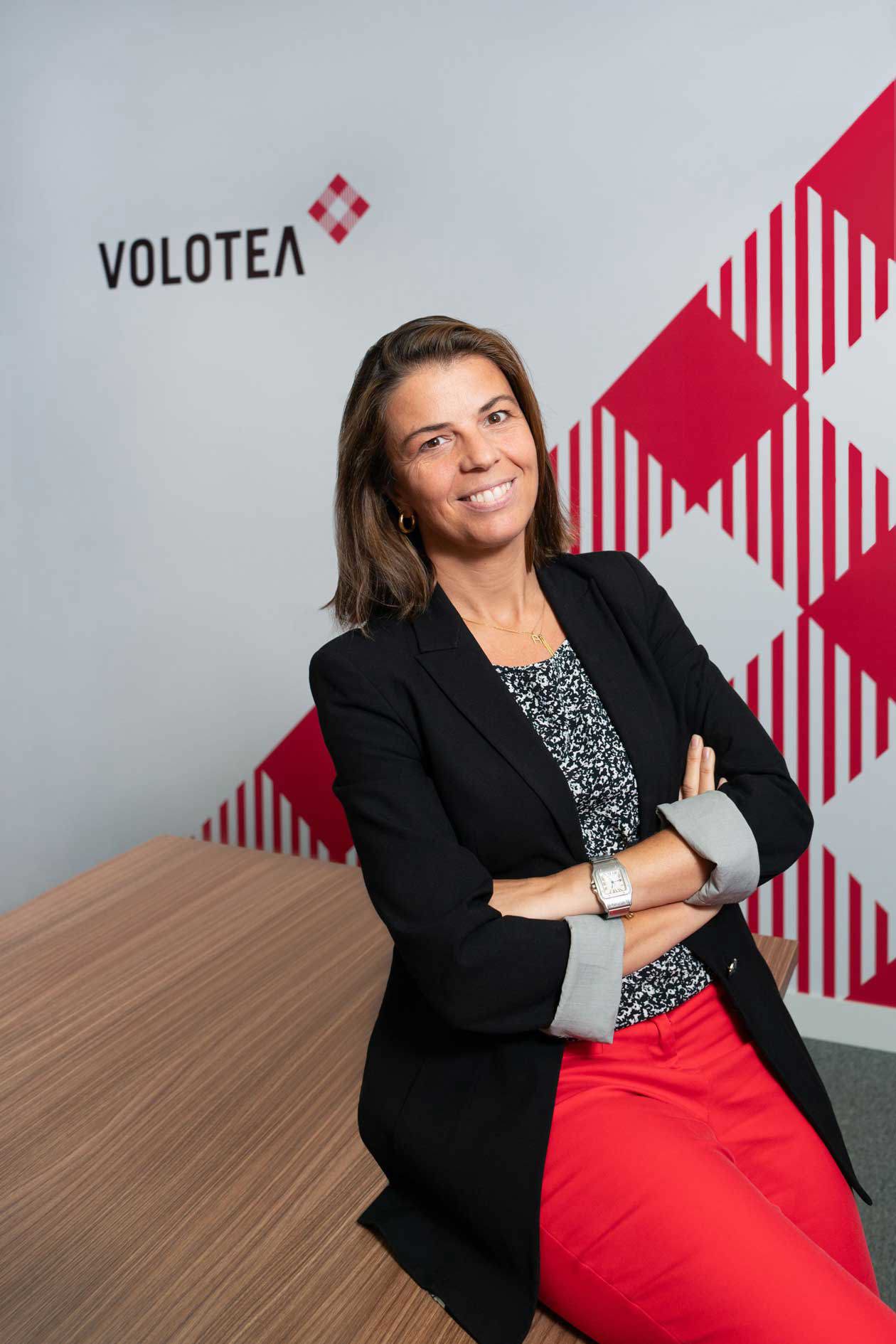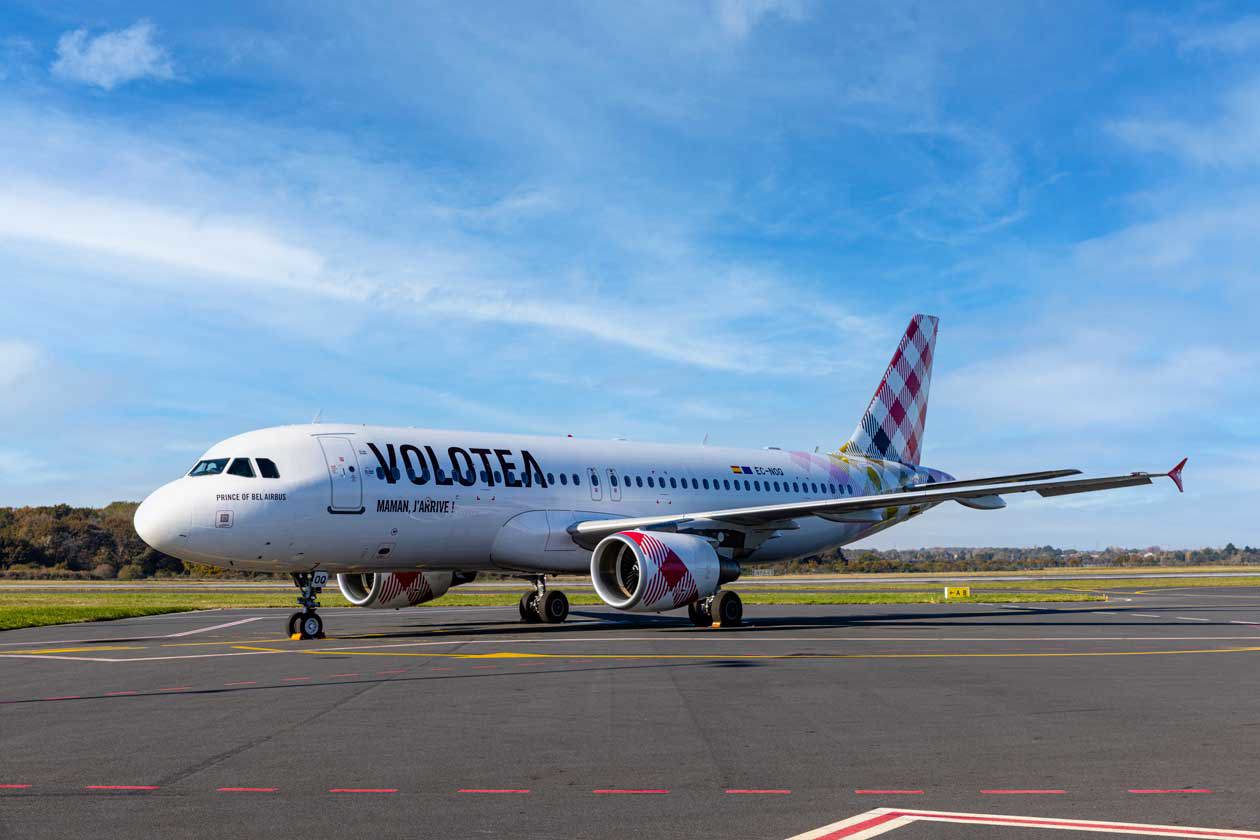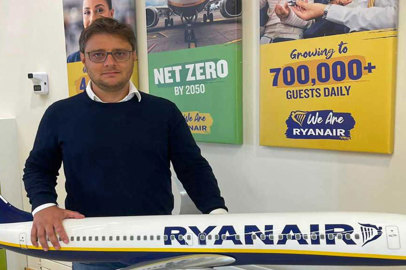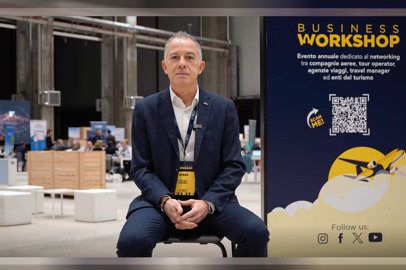13 November 2023
Interview with Gloria Carreras
Volotea's Environmental, Social and Governance
Dr. Carreras, can you explain what you do and what tools you use to communicate Volotea's ESG values?
As ESG Director in Volotea since 2018, my goal is to lead Volotea's transition towards an increasingly sustainable business model. I support the management team in managing and optimizing the strategy to ensure that the impact of our projects is aligned with our sustainability goals. Through continuous assessment of environmental, social and governance criteria, we strive daily to promote a comprehensive growth approach, not only in terms of performance, but also in terms of corporate responsibility and environmental commitment.
We are aware that it is our responsibility as an industry to join forces and work together to continue to implement responsible practices and invest in innovation and new technologies that enable the progressive decarbonization of this key sector for the global economy, and even more so for the union between people. Strengthening connectivity between small and medium-sized European cities is the essence of Volotea's business model. These are cities where 65% of the European population lives - who previously had to travel to a big city to be able to travel. Thanks to the more than 400 direct routes we will offer, more than half of which did not exist before Volotea, people can travel to visit relatives or for leisure in a much easier way.
Sustainability is, therefore, an essential challenge for a number of crucial reasons that concern not only corporate responsibility, but also the future of an entire industry. The aviation industry has come under constant scrutiny due to its significant carbon footprint, which is precisely why at Volotea we are working to adopt cleaner technologies and solutions, such as more efficient aircraft and biofuels, and, since our inception in 2012, we have been developing programs to reduce greenhouse gas emissions. We comply with increasingly stringent government regulations, anticipating them in many cases, thus contributing, with conviction, to the mitigation of climate change.
In my work, dialogue with the main actors involved in this transition is fundamental: only through collaboration with other airlines, airports, institutions, international regulators and suppliers is it possible to achieve this goal and implement tangible change. In this context, we must not forget our consumers and their active involvement to support more sustainable air mobility.

Gloria Carreras, ESG Director of Volotea Copyright © Volotea
Volotea has its own sustainability program called Voloterra. What are the initiatives of the program and the results achieved so far?
Voloterra is our long-term plan to make a real contribution in terms of sustainability, mitigating our environmental impact and promoting a responsible approach to low-cost travel. It was presented in 2022 and is a program that is based on 5 fundamental pillars: an efficient business model, the reduction of CO2 emissions, innovation and new technologies, offsetting emissions and, finally, transparency. The various initiatives launched by Volotea, more than 50 since 2012, the year in which we started operating, revolve around these key points, testifying to our constant commitment to increasingly sustainable aviation.
Among the main projects, we highlight the renewal in 2021 of our Boeing 717 fleet with a fleet of over 40 Airbus A319s and A320s, much cleaner and more efficient; the optimization of all flight phases, through the application of artificial intelligence, to improve performance and, at the same time, optimize the use of fuels; more frequent washing of the engines and outer coating of our aircraft to achieve a more efficient fleet and, finally, the use of a single engine during ground operations (Single Engine Taxi Without APU). These initiatives, among many others, helped reduce our CO2 emissions per fuel consumption per passenger-kilometer (RPK) by 45.5% at the end of 2022. But there's more. In fact, thanks to the rapid progress we have made in recent years, we are committed to achieving 50% reduction in CO2 emissions by 2025, 5 years ahead of the initial plan, and we are aiming for 58% by 2030.
Thanks to Voloterra and the many initiatives we have launched, Volotea was the first company to pass the audit of Bureau Veritas, the world's leading organization in testing, inspection and certification services, in 2022, a milestone replicated in 2023.
The decarbonized airline industry passes through the use of sustainable fuels, the development of new energy alternatives (such as renewable hydrogen) and the electrification of ground fleets for baggage loading and unloading operations and aircraft assistance. What are the initiatives undertaken by Volotea?
The aviation sector is certainly among the most difficult to decarbonize and is responsible, to date, for 2/3% of CO2 emissions worldwide. However, a future without airlines is highly unlikely, both for the economic implications and for the connection between the different countries. In fact, the aviation sector is an essential resource for economic development and cultural enrichment: not only does it facilitate connectivity between countries and continents, but it also generates employment and contributes significantly to the growth of the local economy. This is why it is essential to promote the search for more sustainable alternatives to the traditional fuel used in aviation.
With this in mind, we have started introducing sustainable aviation fuels (SAF) into our aircraft since 2022 – more precisely, we have used around 481,000 litres of SAF, which is one of the highest proportions in the industry in Europe – and we are actively working with leading SAF producers to ensure that these can be further developed and adopted on a large scale. Among the main agreements we have signed to promote SAF are the one with Airbus, to operate some flights of its internal shuttle Hamburg - Toulouse with 34% of SAF and, more recently, with the energy company Cepsa to speed up the decarbonization of air transport through the study and production of sustainable fuel from organic residues such as, for example, used oils in cooking or agricultural waste. This agreement also includes the development of new energy alternatives, such as renewable hydrogen and the electrification of Volotea's ground fleets, which include delivery vehicles, baggage loading and unloading operations, and aircraft assistance.
In addition, we partner with Dante Aeronautical-Dovetail, a company that is making significant progress in its industry. Together with Air Nostrum, we act as investors and supporters of the company, actively contributing to their journey towards the development of a 100% electric aircraft.

Volotea Aircraft Copyright © Volotea
Volotea intends to offer sustainable options ahead of its commitment to achieve Net Zero by 2050. What are the actions you are putting in place for this goal?
Volotea confirms its commitment to pursuing the European Union's goal of achieving the decarbonization of air transport by 2050. To achieve this goal, we will continue to invest in cutting-edge technologies, adopt an increasingly sustainable and efficient fleet and in SAF research. In addition, it must be considered that to connect small and medium-sized European cities we only use direct flights, without intermediate stops, avoiding 65% of the CO2 emissions generated by a connecting flight, and we maximize the occupancy of our flights, so much so that since 2018 we have had an average occupancy rate of 90%.
By purchasing a Volotea plane ticket, how can the traveler understand if his flight is sustainable? Do you offer customers information about your sustainable flights on your website?
On our web page you can find all the information about Voloterra and the projects that the company is carrying out in the five strategic pillars we mentioned earlier: an efficient business model, the reduction of CO2 emissions, innovation and new technologies, offsetting emissions and transparency. We also disseminate information through our social channels and the media, to ensure that it reaches our passengers. In addition, to engage our passengers and raise awareness of sustainability, from September 2023, Volotea customers can voluntarily participate in the purchase of Sustainable Aviation Fuel (SAF) by contributing €2 per passenger when paying for their ticket.
Following the sustainable development of the aviation industry at a global and European level, in your opinion, what will be the future of air travel and what substantial changes await us compared to those already underway?
As we have seen, the transition to more sustainable aviation is a complex challenge that requires the active participation of several actors. In the future of air mobility , scheduled flights with hydrogen or electric energy can be glimpsed: the conversion of combustion aircraft into electric aircraft represents an opportunity and an area still to be explored.
With this in mind, this is why in December 2022 we signed an agreement with Air Nostrum and Dante Aeronautical to support the development of innovative and cutting-edge technologies, capable of guaranteeing low-cost and emission-free flights. However, this is still a distant goal, the result of a long and complex journey. Recently, Dante Aeronautical was recognized as the "Best Startup of the Year" by the prestigious Australian publication Australian Aviation, a recognition of their pioneering work in zero-emission electric aviation. In addition, they have obtained a prominent position in the Innova Invest Programme, supported by the Spanish Ministry of Industry, Trade and Tourism, and have received funding for innovative research in Spain. As far as I am concerned, I have recently been appointed Councilor of Dante Aeronatical, of which I am particularly proud.
Without a doubt, what we can and must do in the short term is to continue to invest in new technologies, without forgetting that the search for Sustainable Aviation Fuels (SAF) is among the most immediate solutions for sustainability. However, it is crucial to work synergistically on two key aspects: on the one hand, the procurement of SAF, substantially increasing its availability and adoption; on the other hand, to ensure the right balance in terms of costs, avoiding that the increase in costs deriving from the use of sustainable fuels significantly affects the cost of the ticket for the final consumer.
Interview by Angela Trivigno
Avion Tourism Magazine
Visual and photos: © Volotea Press Office
You might be interested in
Magazine

Interviews
Interview with Mr. Korchi Mohammed Adil
General Manager of Royal Air Maroc for the Italian market
Magazine

Interviews
Interview with Fabrizio Francioni
Head of Communication Italy at Ryanair
Magazine

Interviews
Interview with Giacomo Cattaneo
Aviation Sales Director of Milan Bergamo Airport

